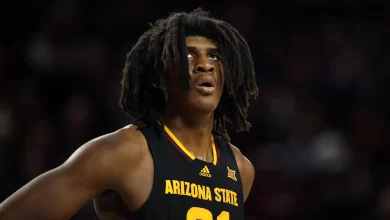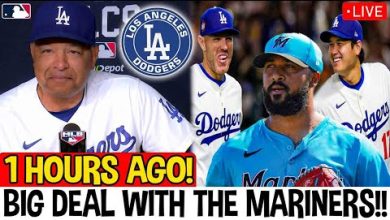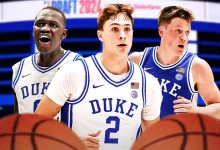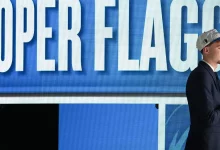The Famous Los Angeles Lakers Will Have a New Majority Owner for the First Time in 46 Years as Mark Walter Takes the Helm
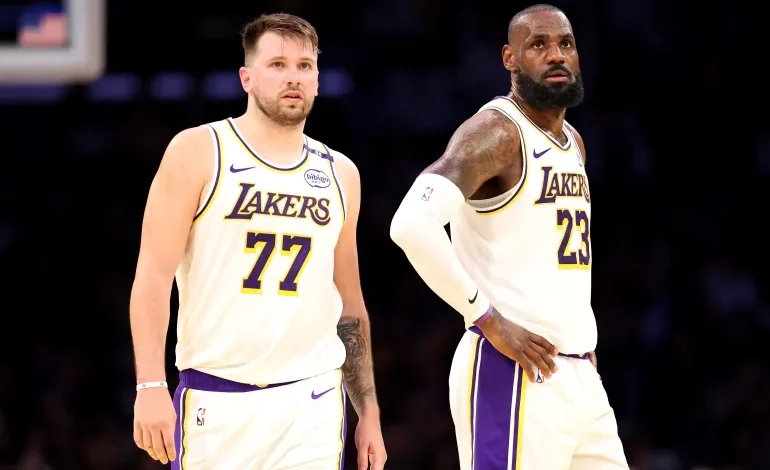
The Famous Los Angeles Lakers Will Have a New Majority Owner for the First Time in 46 Years as Mark Walter Takes the Helm
The Los Angeles Lakers, one of the most iconic franchises in sports history, are entering a new era. For the first time in 46 years, the team will see a change in majority ownership as billionaire Mark Walter steps in to take control. This landmark moment marks the end of an era under the Buss family’s stewardship and opens the door to new opportunities, challenges, and expectations for one of the NBA’s most storied teams. The implications of this ownership shift stretch far beyond just the business side — they signal a potential transformation in how the Lakers operate, build their roster, and engage with their global fanbase.
For nearly half a century, the Lakers have been synonymous with success, glitz, and Hollywood glamour. Under the leadership of the Buss family, the franchise captured multiple NBA championships, attracted legendary players, and cultivated a worldwide following. The team’s history is rich with moments that defined basketball culture — from the Showtime Lakers of the 1980s, led by Magic Johnson, to the Kobe Bryant–Shaquille O’Neal era that dominated the late ’90s and early 2000s, and the resurgence brought by LeBron James and Anthony Davis in recent years. This legacy was carefully nurtured by Jerry Buss, who took over the team in 1979 and transformed it into a global powerhouse. After his passing in 2013, his children maintained the family’s control, ensuring continuity for over a decade.
Now, the baton is being passed to Mark Walter, a titan of business known primarily as the co-founder of Guggenheim Partners, a global investment and advisory firm. Walter’s acquisition of the majority ownership stake marks a significant turning point, not only because of the change in leadership but also because it reflects a new model of sports franchise ownership—one that combines deep pockets, innovative thinking, and a vision for long-term growth beyond just winning on the court.
Walter is no stranger to sports ownership; he is also a principal owner of the Los Angeles Dodgers, where his influence has helped turn the franchise into a powerhouse both competitively and commercially. His entry into the Lakers’ leadership signals a potential blending of traditional sports management with modern business strategies, particularly in media, marketing, and fan engagement. The NBA, much like baseball, is evolving rapidly with advances in technology, global markets, and new ways for fans to connect with their teams. Walter’s experience positions him well to help the Lakers capitalize on these trends.
The reaction across the NBA world has been immediate and intense. Fans and analysts alike are buzzing with curiosity about what changes Walter might bring. Will he maintain the Lakers’ status quo, or will he implement bold new initiatives? How will his leadership impact team decisions, from player acquisitions to coaching hires? The Lakers’ roster, which includes some of the NBA’s biggest stars, already faces high expectations, and ownership plays a crucial role in setting the tone for ambition and resources. Walter’s vision could well determine how long the team remains a championship contender or if it embarks on a new rebuilding journey.
One of the most significant questions on everyone’s mind is how this ownership change might affect the Lakers’ culture. The Buss family was known for blending a deep passion for basketball with a flair for entertainment and showmanship. The Lakers aren’t just a basketball team — they are a global brand that transcends sport. Walter’s challenge will be to honor that heritage while innovating to keep the franchise relevant in an ever-changing sports and entertainment landscape.
Already, there are signs that Walter’s ownership could usher in exciting developments. His success with the Dodgers included investments in fan experience, digital content, and community outreach — all areas where the Lakers could grow substantially. The team’s presence in Los Angeles, one of the largest and most diverse media markets in the world, offers a unique platform to expand the Lakers brand far beyond traditional boundaries. Walter’s business acumen suggests a focus not just on winning championships, but also on maximizing the franchise’s commercial potential.
The Lakers’ fanbase is among the most passionate and widespread globally, and this ownership transition creates a fresh opportunity to engage fans in new ways. From enhancing in-arena experiences at the Crypto.com Arena to expanding digital and social media offerings, there is a vast potential to deepen connections with followers across continents. In today’s sports world, fan engagement is key to long-term success, and Walter’s stewardship could position the Lakers at the forefront of this evolution.
Of course, ownership changes also come with risks. Transition periods can introduce uncertainty among players, staff, and partners. Maintaining stability while charting a new course requires delicate balance and clear communication. The Lakers will need to ensure that their core values and winning mindset remain intact as new strategies take shape. Moreover, Walter inherits the responsibility to uphold the Lakers’ commitment to community involvement, social justice initiatives, and charity work — all areas where the franchise has traditionally played an influential role.
On the basketball side, the Lakers are currently navigating a competitive Western Conference filled with elite teams. The pressure on ownership to support the team with resources and strategic decisions is immense. Fans expect continued investments in top talent, from draft picks to free agency, while balancing salary cap challenges and roster flexibility. Walter’s leadership will be scrutinized not just on financial or branding success but on the court, where championships remain the ultimate measure.
The significance of this ownership change is also felt in the context of the NBA’s broader transformation. Sports franchises are increasingly seen as multimedia entertainment companies with diversified revenue streams. Walter’s background in investment and media suggests he understands this shift well. His stewardship could help the Lakers become a model franchise for integrating basketball excellence with innovative business practices, including partnerships with technology companies, enhanced broadcasting experiences, and expanded international outreach.
The transition from nearly five decades of Buss family ownership to Mark Walter’s leadership is a reminder of the evolving nature of sports franchises in the 21st century. It underscores the balance between honoring tradition and embracing change, between passionate fandom and smart business management. The Lakers’ journey into this new chapter will be watched closely, not just by fans but by the entire sports world, as it may set precedents for ownership dynamics in other leagues.
For the Lakers players, this change brings both opportunity and challenge. New ownership often comes with a renewed commitment to winning and potentially different expectations for performance and professionalism. It can also bring fresh resources and a renewed sense of purpose. How the team adapts to Walter’s leadership and vision could impact morale, cohesion, and ultimately, success on the hardwood.
Mark Walter’s rise as the Lakers’ majority owner is a testament to how sports franchises continue to attract visionary leaders from outside the traditional sports world. It reflects the growing intersection of sports, business, technology, and media in shaping the future of professional athletics. His arrival could signal a new golden age for the Lakers — one that honors the legendary past while boldly pursuing innovation and excellence in the years to come.
As the Lakers prepare to embark on this new chapter, fans and stakeholders alike can reflect on what the franchise has meant to so many over the decades — a symbol of greatness, resilience, and star power. The passing of the ownership torch to Mark Walter is both an end and a beginning, a moment charged with promise and expectation. In a city known for dreaming big and shining bright, the Lakers’ future under Walter’s leadership looks poised to capture the imagination of fans once again.
This historic transition offers a unique opportunity to reimagine what it means to be a champion franchise in the modern era. The Lakers have long been a beacon for basketball excellence and entertainment. With Mark Walter at the helm, the Lakers are ready to write the next chapter in their illustrious history — one that blends tradition with innovation, passion with strategy, and legacy with forward-thinking vision. For a franchise built on winning and spectacle, this new era could be just the spark needed to light up the NBA world once more.




